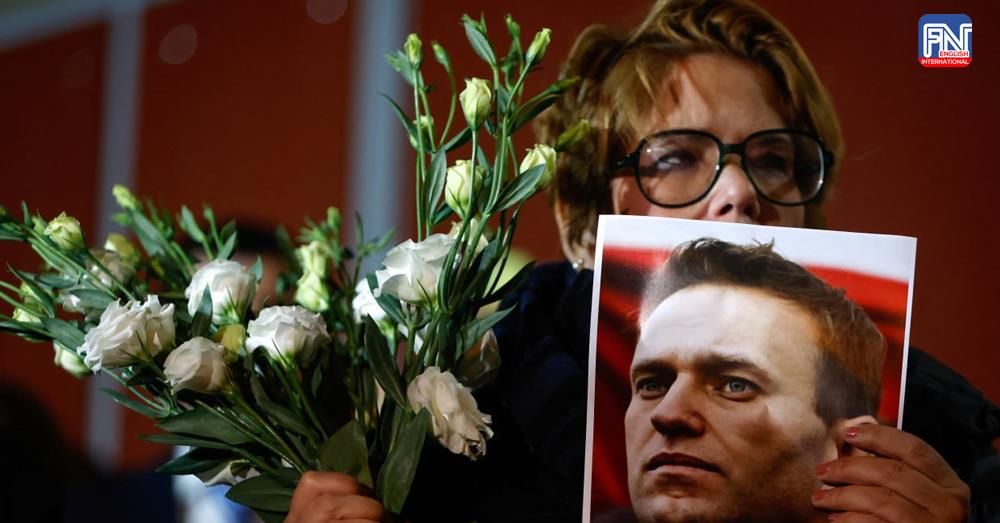SALEKHARD, Feb 24 (Reuters) - The body of Russian opposition leader Alexei Navalny, who died unexpectedly in prison nine days ago, was handed to his mother on Saturday in the Arctic city of Salekhard, his spokeswoman said, though it was unclear what will happen next to the body.
Navalny's family and supporters have accused Russian President Vladimir Putin of having him killed, an accusation that the Kremlin has rejected. He survived a poisoning attempt in 2020 and years of harsh treatment in prison, including long spells in solitary confinement.
Navalny's team said on X on Thursday that his death certificate says he died of natural causes.
In a video recorded before the release of the body, Navalny's widow Yulia Navalnaya accused "demonic" Putin of "torturing" the corpse of a political opponent.
Navalny's allies urged supporters "not to relax" and his spokeswoman, Kira Yarmysh, wrote on X there was no certainty that Russian authorities would let relatives hold a funeral "the way the family wants and the way Alexei deserves."
Leaders of the Group of Seven (G7) major democracies, in a statement pledging support for Ukrainian President Volodymr Zelenskiy on the second anniversary of the war in Ukraine, urged Russia to fully clarify the circumstances around Navalny's death and to free "all unjustly detained prisoners".
"We will hold those culpable for Navalny's death accountable, including by continuing to impose restrictive measures in response to human rights violations and abuses in Russia and taking other actions," the G7 added.
In her six-minute video published on YouTube, Navalnaya said she would continue the fight against Putin's regime, questioned the president's faith, and accused him of holding her husband's body "hostage".
On Friday Navalny's mother Lyudmila said Russian investigators were refusing to release his body from a morgue in Salekhard until she agreed to lay him to rest without a public funeral.
She said an official had told her that she should agree to their demands, as Navalny's body was already decomposing.
On Saturday, Navalny aides said the authorities had threatened to bury him in the remote prison colony where he died unless his family agreed to their conditions.
Since returning to the Russian presidency in 2012, Putin has positioned himself as a defender of traditional, conservative values against what he portrays as corrosive Western liberalism.
He has also trumpeted his closeness to Russia's Orthodox Church, regularly appearing at services around religious festivals, and speaking of his personal faith.
Navalnaya said her husband had been a devout Christian who attended church and fasted for Lent even while in prison. She said his political activism had been inspired by Christian values.

Photo from Reuters